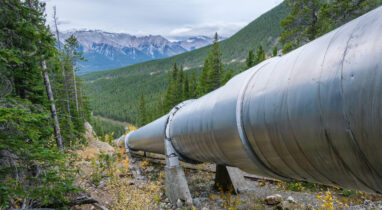A new report released today by the Office of the Parliamentary Budget Officer (PBO) presents a misleading picture of the impact that carbon pricing will have on Canadian households as the price increases to $170/tonne by 2030.
The report accurately shows that a majority of households will be better off financially as a direct result of the carbon tax and rebate.
But the PBO’s claim that the secondary economic impacts of carbon pricing will deliver a net loss to most households is based on an incomplete picture of the economic benefits that climate action will bring for Canadians.
In fact, the new PBO report doesn’t even attempt to show the real-world impact of carbon pricing on Canadian households. Rather, it shows how the carbon price would impact the economy in isolation. That’s not how carbon pricing works in the real world.
“The PBO’s analysis of carbon pricing is like assessing a company’s performance by only looking at its expenses, while ignoring its revenues.”
Clean Prosperity Executive Director Michael Bernstein
There’s overwhelming evidence that carbon pricing is the lowest-cost way to reduce emissions. It’s also the only climate policy that returns revenue to Canadians. It creates an economic incentive for people and businesses to reduce their emissions and helps drive the transformation of the economy. The PBO itself showed in a previous report that carbon pricing will reduce Canada’s emissions by 96 Mt in 2030.
Far from harming Canada’s economy, the low-carbon transformation will bring massive economic benefits to Canadian households. Royal Bank of Canada recently estimated that $2 trillion in spending will be required to achieve net-zero emissions by 2050. That equates to massive investment, and consequent growth in good-paying jobs for Canadians across the country.
The PBO report released today doesn’t attempt to show the economic benefits of climate action. Instead, it models an implausible scenario in which carbon pricing exists in the absence of other climate policies, and in the absence of investment in decarbonization.
An implausible scenario inevitably leads to implausible results.
“The PBO’s analysis of carbon pricing is like assessing a company’s performance by only looking at its expenses, while ignoring its revenues,” said Clean Prosperity Executive Director Michael Bernstein.
“The transition to a low-carbon economy is a massive economic opportunity for Canada that will bring major increases in investment and jobs. But we can’t seize the opportunity without smart policy. Carbon pricing remains the lowest-cost and most effective climate policy tool at our disposal.”
Clean Prosperity works continuously to understand the economic impacts of climate policy on our economy, and to recommend refinements to policies to ensure that they are cost-effective and affordable. We believe there are improvements that the government should make to its carbon pricing policy, as we’ve argued in previous reports. But we firmly believe that carbon pricing should be at the core of any effective climate plan.




